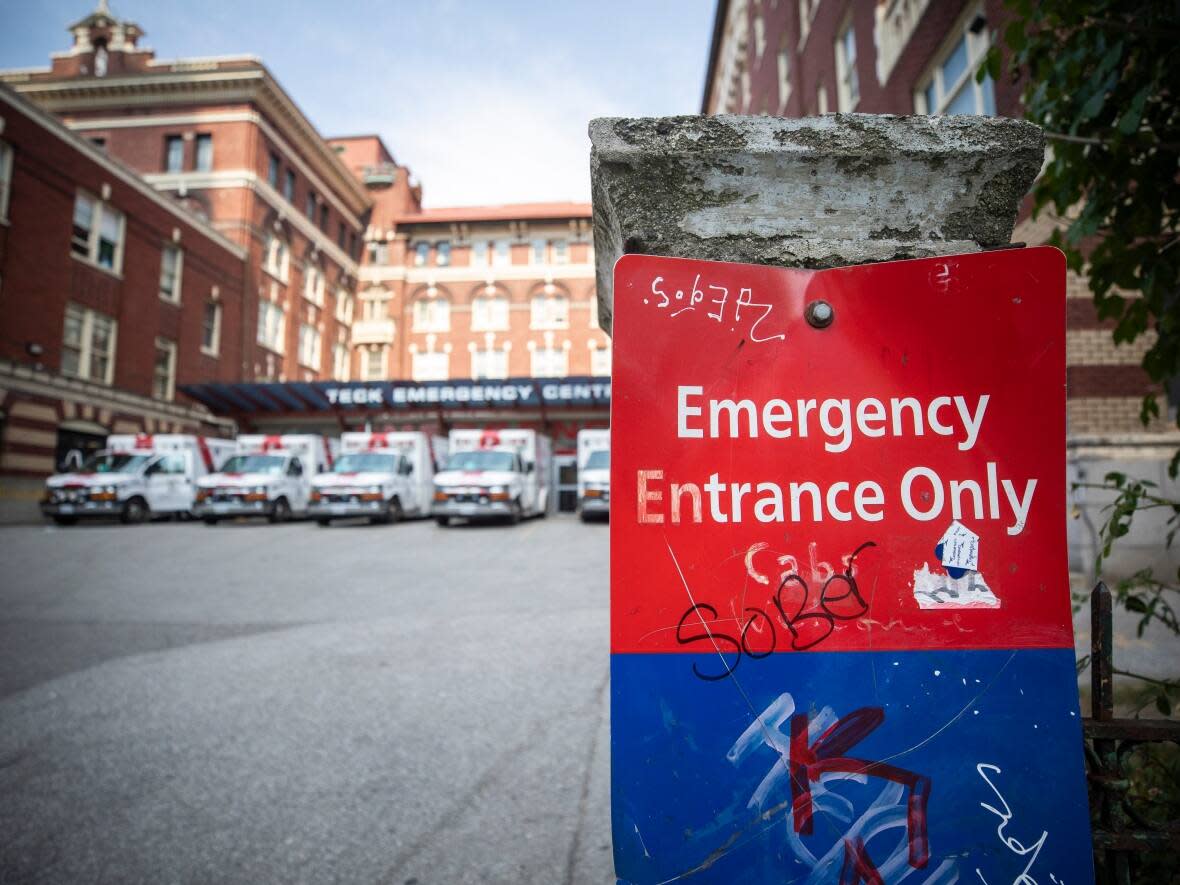Memo suggests ER doctors calling in sick at 2 Vancouver hospitals pay out of pocket to get shifts covered

An internal memo to emergency department staff at two Vancouver hospitals has suggested that doctors calling in sick pay half of the financial incentive in place to encourage others to cover their shift.
Emergency room doctors called at the last minute to cover for a sick colleague are typically paid incentives of about $500.
The memo to emergency department staff at St. Paul's and Mount St. Joseph's hospitals says the department.
"[A]greement that there is a need for a more formalized, agreed upon approach when it comes to sick calls," the memo reads. "We do not have the budget to continue with such frequent incentives to help find coverage. Some suggestions included having the individual pay for half of the incentive money as well as consider having someone on call daily for last-minute coverage."
The memo goes on to say that incentives "for truly urgent, last-minute situations" would still be considered, "but we need to find a more tenable, long-term strategy."
CBC is not naming the ER doctor who provided the memo. In an interview, the doctor said it was shocking to hear the proposal.
"I thought to myself, wow, are you actually asking that?" the doctor said.
"I don't know many people who would think that it is fair for any profession or person to have to pay any amount of money while they're sick to get their shifts covered, especially when it comes to taking care of sick people."
The doctor said emergency departments have become the de facto fallback for B.C.'s health-care crisis. In addition, the ER at St. Paul's is ground zero for the opioid overdose epidemic.
Those factors, combined with staffing shortages and residual burnout from the COVID-19 pandemic, means the burden on ER staff is heavier than ever, the doctor said.
"I think it's very clear that morale is quite low," they said. "I've never been in a situation where people are just so broken about how things are happening."
CBC reached out to Providence Health Care, which operates the two hospitals, for comment but did not hear back by time of publication.
B.C. Health Minister Adrian Dix said he had not seen the memo.
"We're focused on recruiting more doctors and supporting doctors in the health-care system," Dix said. "That's a massive, continuing effort."
The memo also discusses "triage hallway alternatives" at the two hospitals, which are located in the Vancouver Coastal Health region, and "where better to place opioid overdose patients."
Earlier this week, doctors working in Fraser Health, B.C.'s biggest health region, released a string of letters sounding the alarm over understaffing, underfunding and a lack of public transparency.
Dr. Urbain Ip, leading emergency room physician at Surrey Memorial Hospital, said problems with understaffing and overcrowding have him and his colleagues regularly going home "worried sick" about their patients.
"Right now, if my loved one got sick, I'm not sure if I would send [them] to my hospital ... and that's a terrible thing to feel," said Ip, who's been an emergency doctor for more than 30 years.
Dix defended the actions taken by the government in the last nine months to address the crisis, citing hiring and recruitment initiatives and improvement to how physicians are paid as some of the most substantial changes ever in B.C. health care.


